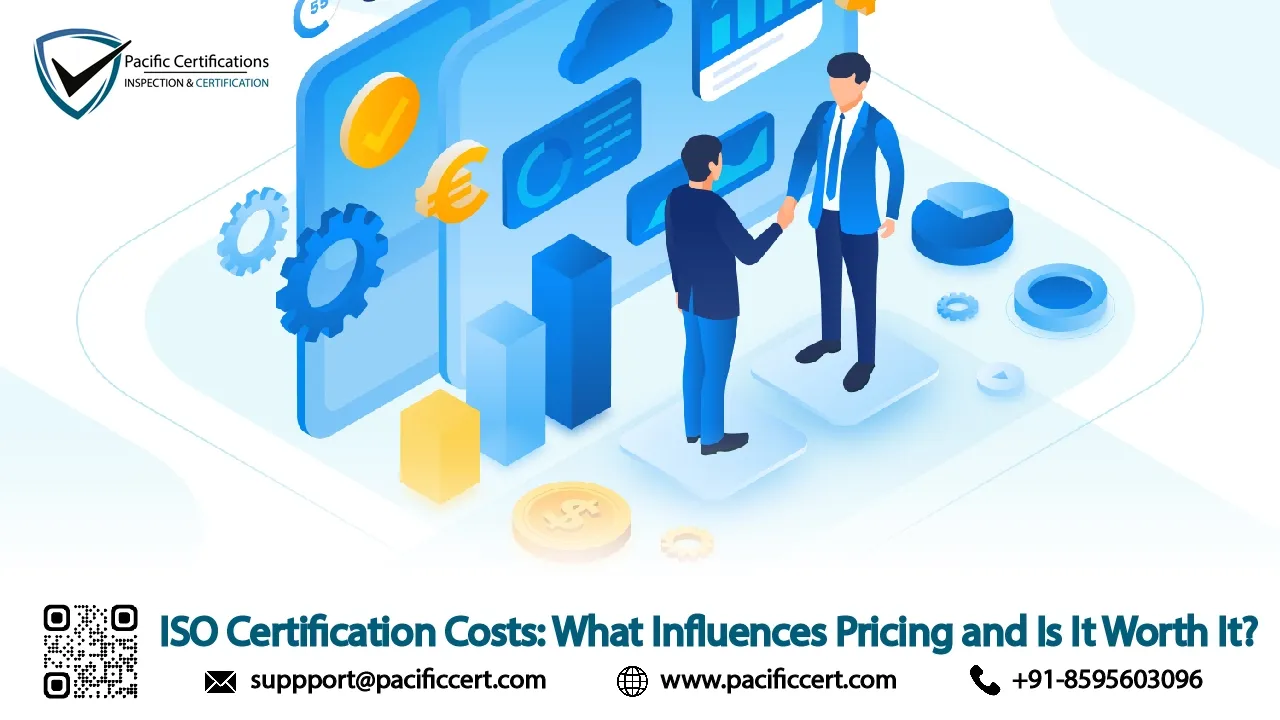ISO Certification Cost: What Influences Pricing and Is It Worth It?

Introduction to ISO Certification
ISO certification provides tremendous value to any organization, especially in terms of providing a structured approach to improving operations, increasing quality and showing the commitment to meeting internationally recognized standards. However, one of the frequently asked questions from businesses is: What will ISO certification cost and is it worth the money? In this blog we are going to review factors affecting the Price/Cost of ISO certification, the value to businesses, and why it may be an investment worth making for your organization.
For assistance, contact us at [email protected].
Understanding the Basics of ISO Certification Price
ISO certification refers to an internationally accepted standard that allows the business to certified their process to be more streamlined, manage quality better, follow compliance rules, and gain customer's trust for their products and services. The process usually involves evaluating your organization's current processes, implementing necessary changes, and seeking certification through an audit process conducted by an accredited certification body. Depending on your interests, you could become certified in numerous areas (i.e. quality management - ISO 9001, environmental management - ISO 14001 or information security - ISO/IEC 27001).
There are many underlying benefits of ISO certification and while many organizations recognize these benefits, the price of ISO certification is widely variable and depends on many different factors. Let's take a closer look at the key pricing factors of certification.
What are the Factors That Influence ISO Certification Cost?
Several variables affect the overall cost of ISO certification, from the size of the organization to the complexity of the standards being pursued. Below are the main factors that influence ISO certification price:
- ISO standards can differ in complexity and of course scope. ISO 9001 (Quality Management) is a common standard with requirements that can apply to many organizations and is likely to cost less to implement than a smaller and more complex standard such as ISO 13485 (Quality Management Systems for Medical Devices). The more complex the standard is, the more the certification body will have to do, which will affect the costs associated with certification.
- The size of the business can also affect the cost of implementation for the business. Generally, a larger organization with complex processes will incur more certification costs than a smaller organization, because it will require more resources, more documentation or may take longer to audit. For smaller businesses which may be less complicated, they may wind up spending less from the certification body.
- The certifying body you choose for the audit can also be involved in the cost you incur. The fee structures vary from certifying body to certifying body. Not all certification bodies have the same fees, and there could be variable costs. It stands to reason that a bigger and well establish certification body may have a premium charge. However, the certification body must still be accredited by a recognized authority on one of the recognized ISO lists.
- In many cases organizations may wish to pursue complex standards or their needs are beyond their own expertise therefore need to hire a consultant to assist them with implementing the ISO standard. The consultant may be used to help the organization understand what the requirements of the standard are, assist the organization with the development of their processes and prepare the organization for the audit. Consultant fee structures can also vary depending on the rate charged for each hour of consulting support and the overall size of the project.
- After initial certification, organizations must undergo regular surveillance audits, typically conducted annually, to maintain their ISO certification. These ongoing costs should be considered as part of the total cost of ISO certification.
ISO Certification Cost and It's Process
The process of obtaining ISO certification generally involves several steps, which may contribute to the overall cost:
1. Gap Analysis:
Before applying for certification, companies will conduct a gap analysis to evaluate their current processes to help them understand what improvements are required. This may involve an internal audit, or they may choose to hire an external consultant, which will add to the cost.
2. Implementing Changes:
After the gaps are identified, companies have to now make changes to their process, policy, and systems to meet ISO standards. Depending on the extent of the required changes this could be a long and costly process.
3. Internal Audit and Training:
Companies may have to perform internal audits and conduct training for staff to ensure compliance with the ISO standard. This may also include internal resource costs, or if needed fees for an external auditor.
4. Final (Certification) Audit:
The final stage in the process is the formal audit by an accredited certification body. The formal audit usually consists of the documentation review (stage 1) and a full assessment of their implemented processes (stage 2). The audit is generally one of the more expensive components of the overall cost.
Is ISO Certification Worth the Cost?
ISO certification price can be high, the benefits probably outweigh the initial costs. Certification can see clients streamline their processes, mitigate inefficiencies and cut waste. With best practices implemented, business processes will most likely be more smooth, which leads to long-term costs savings. ISO Certification is a globally understood and recognized, international standard which shows an organization is committed to quality, safety and compliance.
This can create improvements in customer trust (and trust in you from partners and stakeholders) which means it could allow or produce the opportunity for new clients, contracts or partnerships and increase your market share. ISO certification would serve to differentiate your business function from others. It shows your organization operates in a manner that complies with internationally recognized standards.
Conclusion
ISO Standards can assist organizations to identify and remove potential risks within their process, resulting in less errors, accidents, and potential non-compliance with legal requirements. You might be trying to avoid legal fees, fines or even damage to your reputation. ISO certification price can be high, but the benefits probably outweigh the initial costs.
Many ISO Standards like ISO 9001 are about increasing customer satisfaction by ensuring a good product or service is consistently delivered, with respect to the customer's needs - which improves customer retention and leads better favourable recommendations.
Contact Us
Pacific Certifications is here to guide you through the ISO certification process. Whether you’re interested in pursuing ISO 9001 for quality management or any other ISO standard, our team of experts can help you understand the cost involved and assist you in achieving certification.
For assistance, contact us at [email protected].
Visit our website at www.pacificcert.com.
Ready to get ISO certified?
Contact Pacific Certifications to begin your certification journey today!
Suggested Certifications –

